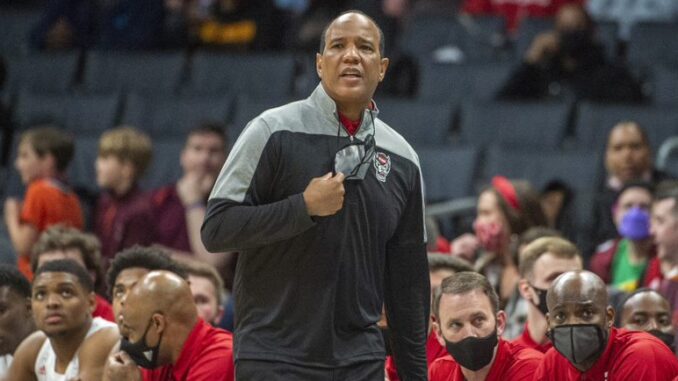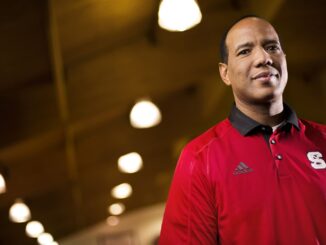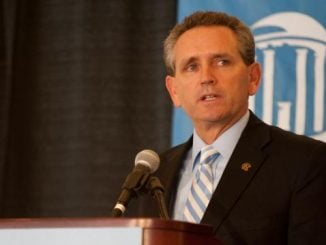
RALEIGH — Kevin Keatts didn’t have much of the Christmas spirit after his team’s ugly 84-70 loss to Wright State at PNC Arena on Tuesday.
But there was still at least one reason for his spirit to be bright.
Twenty-four hours earlier, the NCAA investigation that has hung over his program since the day he was hired five years ago finally came to an end.
Although the Wolfpack was hit with numerous sanctions handed down under the NCAA’s new Independent Accountability Resolution Process for violations committed by the previous staff in the recruitment of one-and-done star Dennis Smith Jr., it managed to avoid a postseason ban.
It was a favorable result that will finally allow Keatts to move forward without the cloud of uncertainty hanging over his head.
Especially when it comes to recruiting.
“The NCAA stuff has been one of the toughest things that I’ve ever had to deal with as a coach,” Keatts said. “There wasn’t one phone call, wasn’t one recruit’s parents that I didn’t have to have the conversation with. Even if they didn’t ask, we wanted to be honest with them to let them know that we were under investigation for something that happened with the prior staff. That being said, I’m excited that it’s over.”
In addition to vacating the 15 wins in which Smith participated during the 2016-17 season, the IARP accepted State’s self-imposed penalties of a one-scholarship reduction for the current recruiting cycle, a reduction in the number of official visits, a $5,000 fine, communication limitations and a reduction in the number of recruiting days per staff member, along with a public reprimand and one year of probation.
The stiffest penalties went to former assistant coach Orlando Early, who received a six-year show-cause order for being the bag man that, according to NCAA allegations, delivered $40,000 in cash from Adidas to Smith as an inducement to sign with State.
Former head coach Mark Gottfried received a one-year show-cause order for his failure to adequately monitor his program.
“We still have some challenges,” Keatts said. “There’s a scholarship reduction. There’s some recruiting days and a communication ban. But I’m very appreciative of the IARP for really looking at it for what it was.
“When you look around the country, everybody has a lot of opinions about our decision and what happened. What I would say is that there shouldn’t be any opinion because this is the first case that went through the IARP. Nobody knows how they are going to look at it.”
The IARP was created out of proposals from the commission headed by former U.S. Secretary of State Condoleezza Rice in 2018 to reform college basketball amid a federal corruption investigation into the sport.
The Smith case was part of that investigation.
Unlike the NCAA’s Committee on Infractions, the IARP is an independent body convened to serve as an independent arbitrator for college sports’ most complicated and serious cases.
According to the public report filed by the IARP, several mitigating factors — including the program’s change in leadership and the excessive passage of time since the violations occurred — were taken into account in the Wolfpack’s case.
That wasn’t the case with a recent decision in which Oklahoma State was slapped with a one-year postseason ban for similar violations by the NCAA’s Committee on Infractions.
“When you look at a program like Oklahoma State, I don’t think they should have got postseason play,” Keatts said. “But they also went through a different format. The way the committee is shifting now … why punish kids who were in eighth grade? We have six of those guys who were in eighth grade. Why punish me and my entire staff when we had nothing to do with it?
“I hope we’re starting to see a shift in what really happens. If someone made a mistake and someone did something that was improper, punish that person. But don’t come at kids who had nothing to do with it and I think that’s what has happened.”


